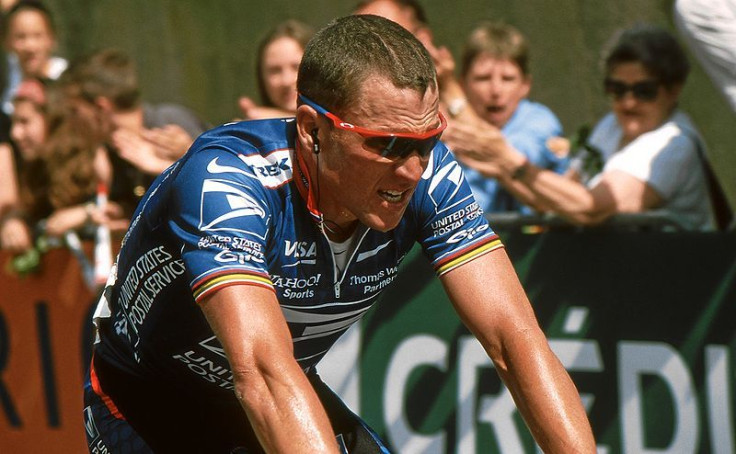Lance Armstrong Claims Winning The Tour De France Was ‘Impossible Without Doping;’ Due To Race’s Extreme Length, Oxygen Is ‘Decisive’

Once heralded as the world's greatest cyclist — and still lauded by some as such — Lance Armstrong announced Friday that winning the Tour de France would not have been possible without doping.
When asked if riders of Armstrong's era had viable chances of winning without doping, Armstrong replied with a hard and fast, "No." He cited the race's length as being the tipping point for many riders to abuse oxygen-enhancing drugs — the Tour de France being one of the longest bicycle races recognized by the International Cycling Union (UCI), at 2200 miles over three weeks.
"My name was taken out of the palmares (list of achievements) but the Tour was held between 1999 and 2005 wasn't it? There must be a winner then. Who is he?" Armstrong told the French newspaper Le Monde when asked the question regarding winning naturally, reported Reuters. "Nobody came forward to claim my jerseys."
Armstrong's claims seem partly justified given the Tour de France's spotty history with issues of doping. The earliest riders at the start of the 20th century used alcohol and ether to dull muscle pain. In 1924, Henri Pélissier and his brother Charles admitted to using chloroform, cocaine, aspirin, and "horse ointment" to reduce inflammation and boost energy. And in July 1967, one of Britain's most successful cyclists of all-time died climbing Mount Ventoux after taking amphetamines.
Since then, international cycling has experienced a nearly two-decade-long battle with cyclists using the hormone erythropoietin (EPO) to increase the oxygen-producing cells in their body. The increased oxygen allows the riders to maintain greater stamina throughout the race, and until recently could go sight unseen with relative ease. Given the influx of EPO use, however, UCI developed a relationship with the International Olympic Committee to form the World Anti-Doping Agency (WADA) in 1999 — the same year Armstrong won his first Tour.
"If he's saying things like he doesn't think that it's possible to win the Tour clean," said American rider Tejay van Garderen of the BMC team, "then he should be quiet - because it is possible."
The 2013 Tour de France begins on Saturday. UCI President Pat McQuaid lamented the timing of Armstrong's comments, calling them "very sad."
"I can tell him categorically that he is wrong. His comments do absolutely nothing to help cycling," McQuaid said in a statement. "The culture within cycling has changed since the Armstrong era and it is now possible to race and win clean."
Armstrong, for his part, challenged McQuaid's legitimacy as UCI's leader.
"Pat McQuaid can say and think what he wants. Things just cannot change as long as McQuaid stays in power," he said. "The UCI refuses to establish a 'Truth and Reconciliation commission' because the testimony that everyone would want to hear would bring McQuaid, (his predecessor) Hein Verbruggen and the whole institution down."
Armstrong did not elaborate on the terms of the commission or testimony.
When Armstrong first opened up about using performance-enhancing drugs to win all seven of his Tour de France titles, he told Oprah Winfrey that using such drugs was just "part of the job" for a professional cyclist. He recently told Le Monde that he still considers himself the record-holder for his seven victories.
Armstrong has been banned from the sport for life and stripped of all his Tour victories during that time period.
With Saturday's race marking the Tour de France's 100th anniversary, McQuaid has been steadfast in putting the Armstrong-era of cycling behind the sport.
"Riders and teams owners have been forthright in saying that it is possible to win clean," he said. "And I agree with them."



























